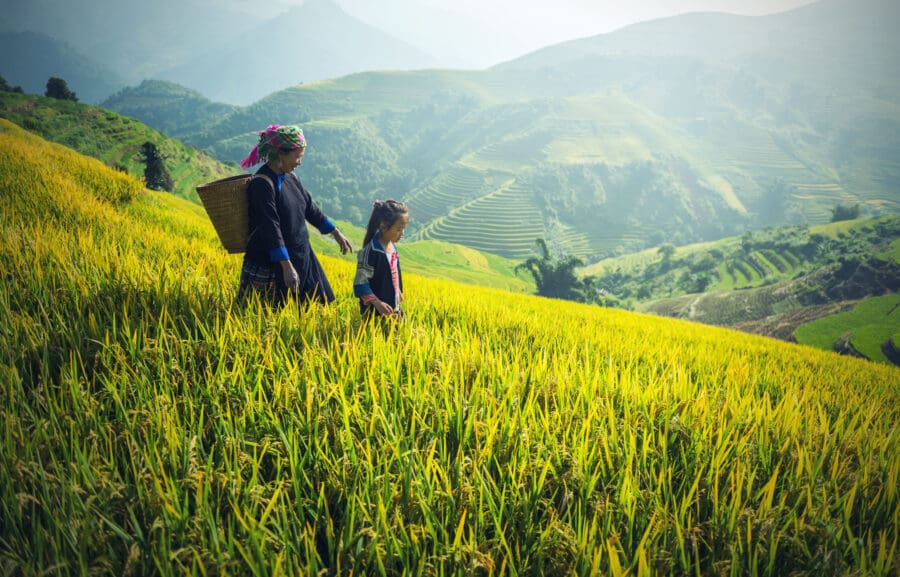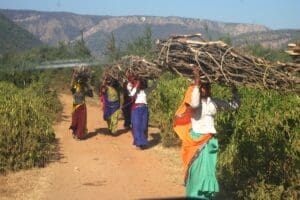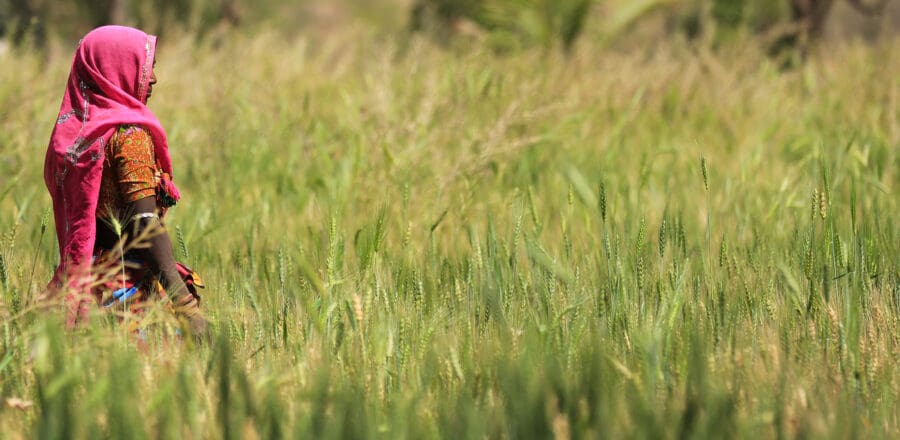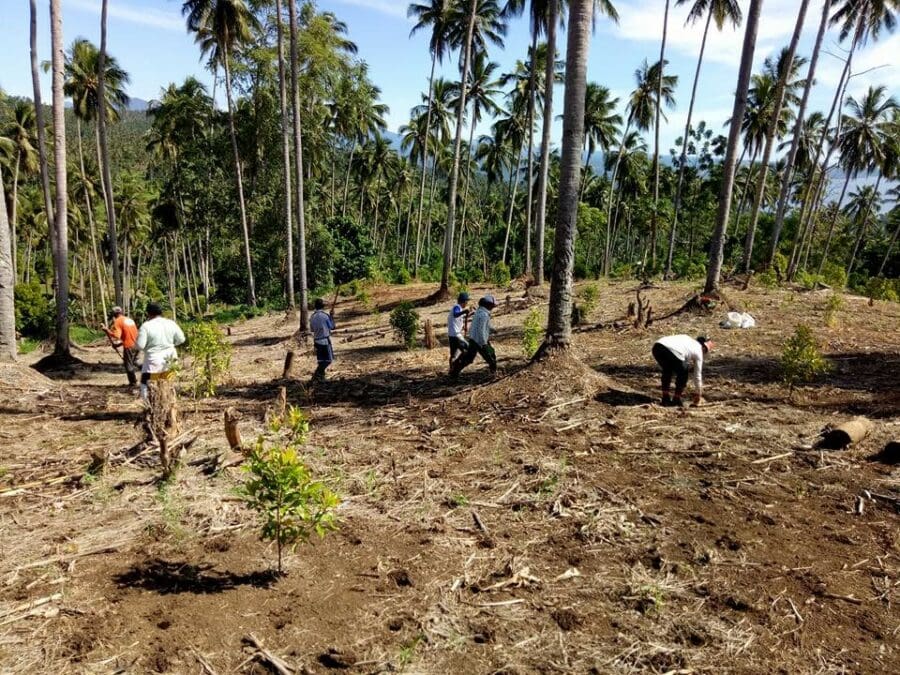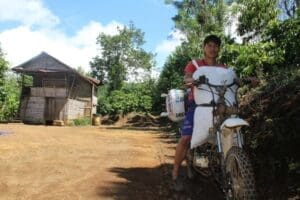People may donate directly to the Together for NEPAL initiative on Global Giving.
Nepal is facing a harrowing COVID-19 crisis as cases surge and lockdowns are extended in 72 of the country’s 77 districts. The country is now reporting more than 9,000 daily cases, an increase of 3,000 percent since mid-April.
Between May 1-14, Nepal’s test positivity rate was 46.7 percent, the highest in the world. Despite this, the overall testing rate remains abysmally low, implying that the actual numbers are much higher. The underreporting is particularly severe in rural and forested areas, home to Nepal’s most vulnerable local and Indigenous communities.
The country has been running out of oxygen, an essential treatment for COVID-19 patients, while its largest supplier, India, deals with its oxygen shortage at home. Medicines and hospital facilities remain scarce, so much so that patients are being treated on park benches and in parking lots as family members and community volunteers queue for oxygen outside Teku, Kathmandu’s main infectious diseases hospital. Hospitals in Kathmandu have already reached maximum capacity, in some cases even treating two people per bed. In rural and remote parts of Nepal where hospitals and testing facilities do not exist, people are dying at home.
Nepal is even less prepared than neighboring India to test and treat patients in rural areas as highly infectious new variants sweep through the countryside, affecting both young and old. In January, it was one of the first countries in the world to kickstart a vaccination campaign and saw a dramatic decline in new cases. But now, as the test positivity rate continues to rise, the vaccination rollout is slowing due in part to the COVID-19 crisis in India. The Serum Institute of India (SII), the world’s largest vaccine maker producing the AstraZeneca vaccine, announced on May 19 that they are postponing all vaccine exports until at least October. This includes the doses Nepal has already paid for.
The crisis is being exacerbated by ongoing political unrest. Nepal’s parliament was dissolved last week for the second time in five months and new elections have been called for November. The Prime Minister and his government have been under intense scrutiny for their handling of the deadly second wave. As the country scrambles to elect a new federal government, some health care workers and community volunteers feel as though they are battling the crisis on their own.
Communities on the frontline
In the absence of nationwide healthcare infrastructure, Nepal’s Indigenous and local communities have been forced to take matters into their own hands. RRI Partner, the Federation of Community Forestry Users Nepal (FECOFUN), has been on the frontlines since the beginning of the crisis.
During the first wave of the pandemic in 2020, FECOFUN, which has 8.5 million community members across the country, collaborated with governments and Community Forestry User Groups to expedite relief and livelihood support to more than 2,200 communities. Throughout both waves of the crisis, they helped organize a national campaign to spread information about the disease, including transmission and prevention, sharing invaluable insights about medicinal plants and traditional forest knowledge via radio, SMS text messages, and home visits. It also set up 1,411 quarantine and self-isolation centers throughout Nepal’s seven provinces, and distributed food, masks, and other sanitary materials to the rural poor, wage labor families, and Indigenous Peoples.
Bharati Pathak, Chairperson of FECOFUN, describes the current situation as much worse.
“This second wave is far more serious,” she said. “FECOFUN and its allies tried to meet this challenge through our own community funds, but the scale and speed of the crisis have overwhelmed us.” As local governments appealed for support and oxygen supplies, FECOFUN purchased 10 oxygen concentrators from China which arrived in Tulsipur, where positive case rates are high, on May 19. A large portion of western Nepal depends on oxygen concentrator deliveries from a single city, Nepalgunj, which must be driven several hours over dilapidated roads to their destination.
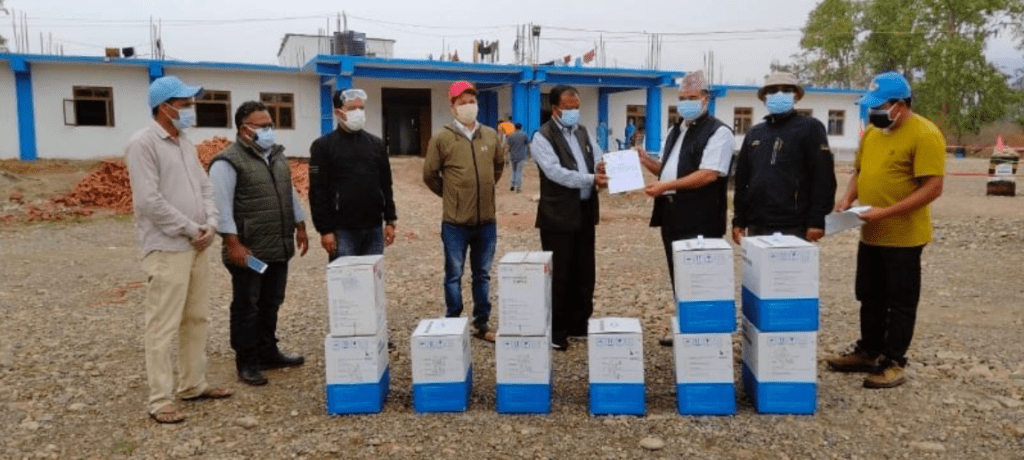
FECOFUN, along with its allies, are scrambling to meet this existential crisis as oxygen, medicines, and health supplies run out, the country is in lockdown, livelihoods in the vast information sector disappear, and people are deprived of basic needs in absence of employment and incomes.
To grapple with the new crisis, FECOFUN, the Municipal Association of Nepal (MuAN – National Association representing 293 Municipalities), the Nepal Federation of Indigenous Nationalities (NEFIN – representing 59 Indigenous Peoples of Nepal), Green Foundation Nepal, and the Centre for Indigenous Peoples Research and Development (CIPRED), have launched a new joint initiative, Together for NEPAL. Their goal is to combine their extensive collective capacities to address the shortage of oxygen and other supplies and work with provincial and municipal governments to support relief efforts.
“The situation has become simply too dire for us to manage alone,” said former RRI Board member and Mayor of Tulsipur, Ghanshyam Pandey, who is part of the initiative. “To prevent further loss of lives, we are appealing to the international community to stand in solidarity with us at this time of emergency.”
Together for NEPAL has issued a global appeal to individuals and philanthropic organizations to join its fight against the pandemic, urgently seeking monetary support and material donations such as oxygen, vaccines, tests, and other medical supplies.
As developed nations ramp up vaccination campaigns and reopen borders to summer tourism, the crisis in Nepal is at risk of going unnoticed and getting far worse. Wealthy nations, donor organizations, philanthropic institutions, and the broader global community must act now to avoid a human catastrophe of unprecedented scale.
Updated September 2021: Information on how to donate and support the Together for NEPAL initiative
Throughout earlier waves of the pandemic, Together for NEPAL expedited relief and livelihood support to more than 2,200 communities, organized national awareness campaigns, arranged for oxygen concentrator deliveries, opened 1,411 quarantine centers, and distributed food, masks, and sanitary materials to rural and Indigenous communities. This fall, they are leading vaccination awareness campaigns, promoting access to affordable healthcare, and supporting locally-led enterprises and intergenerational learning. While daily case counts may have decreased, vaccine awareness and access are now key to preventing further devastation from a likely third wave.
Only 19% of the population has been fully vaccinated. Millions are unemployed, school closures are widespread, and medical care remains financially inaccessible to most. Nepal relies heavily on remittances from migrants abroad as well as tourism, which mobility restrictions complicate. Vaccine hesitancy and access – the queue can be hours long and itself an exposure risk – are essential to address.
Nepal has shown the power of community forestry for decades, and we are now called to show solidarity at this time of crisis, which threatens to undermine decades of progress achieved by the country’s Indigenous Peoples and rural communities. By supporting Together for NEPAL, you’re not only helping the country cope with the pandemic, but also contributing to reducing deforestation, empowering women leaders, and alleviating poverty for its most vulnerable communities.
People may donate directly to the Together for NEPAL initiative on Global Giving.
Please share far and wide with your networks using the social media toolkit here.

